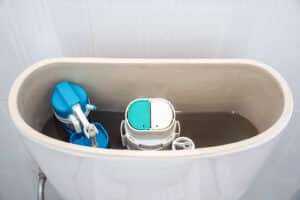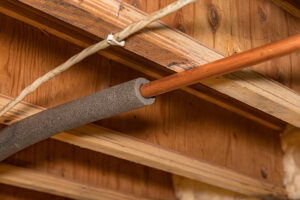
Things To Know About Solar Water Heaters: Tips From Your Plumber
People seldom give a lot of thought to the hot water that flows from their faucets. And yet, water heating accounts for 18 percent of your utility bills. With fuel prices increasing, it’s time to look for a more cost-efficient option.
Solar water heaters, and anything solar, have grown in popularity over the last few years. This blog post examines these green energy water heaters and their uses.
What Are Solar Water Heaters?
Conventional water heaters use electricity, natural gas, or oil to generate heat. Solar water heaters use the sun’s rays to warm water. While heating water by exposing it to the sun is not a new practice, solar water heaters do so in a much more efficient and reliable way.
In its simplest form, the system consists of a collector and a storage tank. The collector can be a tank, a couple of plates, or a series of tubes in which water or a fluid absorbs the sun’s heat.
Once heated, the water then flows to the storage tank. Bear in mind the energy absorbed by the collectors in a solar water heater cannot power your appliances. You would need a solar energy system for that.
Types of Solar Water Heaters
There are two main solar water heating systems: active and passive. Both systems are further divided into subcategories based on circulation systems, storage capabilities, climates, and other factors.
- Active Solar Water Heaters
Active systems rely on a pump to circulate water, which runs on electricity. They often cost more than passive systems but are more efficient. Active systems can be direct or indirect.
- Direct Circulating System: Water is pumped through heat collectors, absorbing the sun’s heat. It then flows into the storage tank. These systems work best in climates that do not experience freezing temperatures.
- Indirect Circulating System: The pump circulates an antifreeze liquid instead of water. From the collector, heated antifreeze passes through a heat exchanger, which warms the water. The water then flows into a storage tank. This method works in colder climates where temperatures drop below freezing.
- Passive Solar Water Heaters
Instead of a pump, passive systems depend on gravity to circulate water. They are less efficient than active systems but can last longer. The two types of passive systems are integral collector-storage passive and thermosiphon.
- Integral Collector-Storage Passive System: The sun’s rays heat the water stored in a transparent tank, which also works as the collector. The water then passes into the home’s plumbing system. These solar water heaters can be heavy and require a sturdy structure supporting weight. They are suitable in climates where it rarely freezes. They work best for households where most hot water is used during the day and evening.
- Thermosiphon Systems: These systems also heat water in a collector on the roof. The water flows into the home when someone opens a hot water fixture. These water heaters don’t work well in colder climates.
Things to Consider When Choosing a New Solar Water Heater
Energy Savings
Because the sun’s energy is free and renewable, you won’t be paying for fuel costs. Even in active systems, the electricity used to power the pump is minimal compared to conventional water heaters.
The Department of Energy estimates that a solar water heater can reduce water heating costs by 50 to 80 percent. The actual savings, however, depend on the fuel prices in your area, the amount of sunlight available, the type of system, and other factors.
Costs
Solar water heaters are among the most expensive water heaters available. Although you can get tax credits and rebates, the cost may still be high. Whether a solar water heater is worth the investment depends on your circumstances.
Take your time to weigh your options and check for available incentives. A local plumber can tell you how much solar water heaters and their installation cost in your area and can help you find a cost-efficient system.
Climate
Solar water heaters work best in milder climates with plenty of sunlight. In colder places, you would need a more extensive system. Passive systems are not an option in areas that experience regular freezing and could burst in the cold.
You must carefully choose your system to prevent water damage from frozen pipes. Some homeowners drain their solar water heaters when temperatures drop and use a conventional heater during the colder months.
Efficiency
Because solar water heaters rely on sunshine, the best time to use hot water is during the day and evening.
You might need a conventional heater for use on cloudy days and when the demand increases. Most solar water heating systems include a backup heater for such purposes.
Installation and Maintenance
The efficiency of a solar water heating system largely depends on proper installation. The amount of sunshine, local building codes, safety considerations, roofing conditions, and climate all affect the installation process. A qualified specialist or a licensed plumber should only install solar water heaters.
Solar water heaters can last around 20 years and require minimal maintenance. A plumber may come for a service check every three to five years. The technician will replace the antifreeze and check the other components of the system. Maintenance may be more frequent in areas with hard water to prevent mineral buildup from clogging the system.
Go Green with Benjamin Franklin Plumbing of Myrtle Beach
Not sure what type of water is best for you? Contact our professionals at Benjamin Franklin Plumbing of Myrtle Beach.
Our trained and licensed plumbers have years of experience installing, repairing, and servicing water heaters. They will help you with whatever plumbing issue you may have. We guarantee you percent satisfaction with all our services. Don’t hesitate to call us today.
The Takeaway
A solar water heater can cut your water heating bill in half if not eliminate it. That is a lot of savings over the product’s lifetime. Pairing it with a conventional water heater can extend the life expectancy of both appliances while providing you with hot water all year round. By using clean and renewable energy, you will do your part in protecting the environment.
See our most recent blog on this topic here.
Find out our service area here.
Photo By styleuneed.de at Shutterstock
Is The Placement Of Your Unit The Cause Of Frequent Water Heater Repair Services?
Water heaters are incredibly important appliances in any household. They provide hot water for various uses such as bathing, cleaning, cooking, and so much more. However, not everyone knows that the placement of your water heater can also play a huge factor in its durability and longevity. The improper placement of your water heater can lead to further repair issues and even cause permanent damage. This blog post will explore how the placement of your unit is causing frequent water heater repairs and how to avoid them.
Positioning Is Triggering Sediment Buildup
Are you experiencing frequent repairs on your water heater? It may not just be a coincidence. Sediment buildup is a common culprit for water heater malfunctions, and the positioning of your unit could be playing a role. Poorly placed water heaters can create sediment buildup, causing your system to work harder and leading to more frequent breakdowns. For example, if the angle of your unit is incorrect and the unit is tilted too much, the sediment can collect in one spot and force the hot water to flow through a smaller area. This leads to more pressure on your system, resulting in frequent repairs. To reduce this problem, it is important to place your water heater upright where it will stay level and stable.
Poor Placement Can Lead to Overheating
Have you noticed that your water heater is causing you more trouble than usual lately? It could be that poor placement is to blame. Many homeowners don’t realize your water heater’s location can greatly affect its performance and lifespan. If your water heater is placed in a small, poorly ventilated space, the system may not be able to circulate air properly and can easily overheat. This can lead to many problems, including frequent repairs and dangerous malfunctions. To avoid these issues, it’s important to ensure your water heater is properly placed in a well-ventilated area.
High Humidity Is Causing Corrosion
Are you having frequent water heater repairs due to corrosion? It could be that high humidity levels in your home are causing the problem. The position of your unit can affect the amount of moisture it is exposed to, which can lead to rust and corrosion. If your water heater is located near a source of high humidity, such as a laundry room or bathroom, the air’s moisture can corrode your unit’s metal components and cause frequent repair issues. To prevent this from happening, it’s important to place your water heater in an area that is away from high humidity levels. You can also invest in a humidity monitor to keep track of the levels in your home so you can take action before corrosion becomes an issue.
Too Close to the Ground Is Affecting Performance
If your water heater is placed too close to the ground, it can cause the accumulation of moisture, dirt, and debris that can eventually cause rust and leaks. This can lead to further repair issues and even require the replacement of the entire unit. To avoid this, place your water heater on a stand or base to provide ample space from the ground. You can also install a drain pan underneath your unit to catch any liquid that may leak out.
Low Clearance Is Triggering Leaks
Are you dealing with frequent water heater repairs due to leaks? It may be time to check the clearance between your unit and its surrounding walls. Poorly placed water heaters can cause insufficient clearance, leading to leaks in your system. If the surface of your water heater is too close to a wall or other structure, it can cause the pipes and other components to be pressed too tightly together, leading to holes or cracks that cause water leaks. To avoid this, ensure your unit has enough clearance from surrounding walls and structures.
Confined Space Is Preventing Thorough Assessment and Quality Repairs
While it may seem like a small detail, the placement of your water heater can greatly impact the effectiveness of its repairs. If your water heater is in a confined space, such as a closet or utility room, it can be difficult for repair technicians to assess the damage and make quality repairs fully. To properly assess an issue, technicians need enough space to move around and get access to all of the components of your system. If the area surrounding your water heater is too cramped, it can be difficult to get a good look at the problem and make the necessary repairs. To ensure quality repairs, ensure your water heater is placed in an area with enough space for technicians to work.
Check Where and How Your Water Heater Is Placed
When dealing with frequent repair issues, it’s important to consider the placement of your water heater. Poorly placed units can cause many problems, from rust and corrosion to leaks and insufficient clearance. To ensure your unit is in optimal condition and functioning properly, take the time to check where and how your water heater is placed. If necessary, make adjustments to the placement of your unit so that it’s in an area with adequate ventilation, clearance, and space for technicians to make repairs. This can help you avoid costly water heater repair bills and ensure your unit runs smoothly for years.
Contact Us for Professional Help
If you still have frequent repair issues with your water heater, contact the professionals at Benjamin Franklin Plumbing of Myrtle Beach. We have years of experience in diagnosing and repairing water heaters and can help you get to the bottom of any issue quickly and efficiently. From checking your unit’s placement to making repairs, we provide comprehensive services that keep your system running optimally. We also provide preventive maintenance services to help you avoid costly repair bills in the future. Our emergency services are available 24/7, so don’t hesitate to contact us today for help with your water heater.
See our most recent blog on this topic here.
Photo By Ray49 at Shutterstock
Plumbing Problems? Call A Plumbing Service
Plumbing problems are very frustrating because many can affect your ability to perform everyday tasks. Also, some issues can cause water damage and mold growth, which can be expensive to fix, so it’s best to call a plumbing service as soon as the problem starts. Waiting too long could cause the situation to escalate, resulting in a more serious problem with a more expensive repair bill.
If you’re considering fixing the problem yourself, you may want to think twice. If you don’t have the proper training, a DIY repair could worsen the situation, so the job should be left to a professional.
If your plumbing system experiences any of the following problems, you should hire a plumber.
Drain Issues
Water should flow quickly down the drain when it runs. If it doesn’t, there’s a problem with the drain, and you should call a plumbing service.
If the water drains slowly, there’s a small clog in the drain that prevents the water from draining quickly. Many homeowners use liquid drain cleaners to eliminate small clogs, but these products contain chemicals that can damage the pipes. A plumber has the tools and skill to eliminate a minor clog before escalating to a significant clog that prevents the water from draining.
A significant clog will cause standing water in the sink or tub, preventing you from using it until the clog is eliminated. Also, standing water is a breeding ground for bacteria, creating a health hazard in your house. A plumber can eliminate the clog, allowing the water to drain.
If multiple drains clog simultaneously, they didn’t all clog simultaneously, and there’s likely a clog in the sewer line. This is a serious problem because the longer the clog remains in the line, the larger it will become. It won’t be long before the water and waste have nowhere to go, causing a sewage backup in the house. A backup will leave a nasty, potentially toxic mess in your home that will be very unpleasant to clean up. A plumber can eliminate the clog from the sewer line, allowing the water to flow quickly down the drains.
A plumbing service will send a plumber to your house to assess the situation, and they’ll use the most effective method to eliminate the clog, allowing the drains to function correctly.
Brown or Rust Colored Water
The water coming from your taps should be clean and clear; brown or rust-colored water indicates contamination. It isn’t safe to use contaminated water, so you should hire a plumber immediately.
The issue is with the water heater if the hot water is discolored and the cold water is clear. When large amounts of sediment build up in the tank, the hot water will break it down and contaminate the water supply. If the plumber can’t flush the sediment from the tank, the unit must be replaced.
If the water heater is over ten years old, the interior of the tank could be breaking down, causing sediment and metal shards to contaminate the water. This can’t be fixed, and the unit has to be replaced.
If the hot and cold water is contaminated, the problem is with the pipes. When your pipes age, they can corrode, causing rust to contaminate the water. A leak under the house can also cause contamination if dirt gets into the line through the leak.
A plumbing service will send a tech to figure out why the water is contaminated so they can resolve the problem.
Poor Water Pressure
Adequate water pressure is necessary so everyday household tasks don’t take longer than usual. Also, your water-based appliances rely on sufficient water pressure to function correctly. If your water pressure is suddenly reduced, you should hire a plumber.
If only the hot water pressure is poor, the issue is with the water heater. When sediment builds up in the tank, the hot water can break it down, causing the unit’s waterline to clog. The plumber can try to flush the sediment, but the unit must be replaced if they can’t. They can unclog the waterline, but if you don’t install a new unit, the drain line will keep clogging, and the plumbing repair bills will add up.
If the hot and cold water pressure is insufficient, the problem is with the plumbing system. Several issues can affect the water pressure, including:
- A problem with the water meter valve or water shutoff valve
- A broken pressure regulator
- Corroded pipes
- A significant clog in the pipes
- A significant plumbing leak
A plumber will inspect the plumbing system to determine what’s affecting the water pressure so it can be fixed.
The Toilet Runs Constantly
Toilets are designed to run when you flush to allow the toilet tank to fill so it’s ready for the next flush. The toilet should stop running when the tank is full, and if it runs constantly, you should call a plumber.
A few issues can cause the toilet to run constantly, such as a broken flapper or chain, the refill hose being too long, the float height must be adjusted, or the toilet reaching the end of its lifespan and should be replaced.
A running toilet shouldn’t be ignored because it wastes around 30 gallons of water daily, increasing your water bills. A plumber can inspect the toilet to figure out why the toilet runs constantly and resolve the problem.
Call Benjamin Franklin Plumbing of Myrtle Beach
If you have a plumbing issue and need to hire a plumber, look no further than Benjamin Franklin Plumbing of Myrtle Beach. We’re a full-service plumbing company providing excellent service to our customers for years.
Our plumbers are professionally trained and worked as apprentices before coming to work with us, and their knowledge and skill have allowed them to complete some of the most challenging jobs in the industry.
If a plumbing problem occurs and must be addressed immediately, don’t panic. We provide emergency service 24 hours a day, 365 days a year, and we’ll send a plumber to your home to resolve the problem quickly.
If you need an appointment, give Benjamin Franklin Plumbing of Myrtle Beach a call today.
See our most recent blog on this topic here.
Photo By Oasishifi at Shutterstock
Why A Plumber Thinks You Should Insulate Or Protect the Pipes
When it comes to plumbing, no homeowner ever wants to pay a lot of money on repairs or costly replacements. Thankfully, you can avoid an expensive plumbing emergency by taking care of your appliances and fixtures. In this article, we’ll talk about why it’s important to insulate or protect the pipes. If you have questions, please don’t hesitate to get in touch with a plumber in your area.
What Is a Plumbing Emergency?
When the water heater breaks and starts flooding your home, the first thing you need to do is turn off your water and then call an emergency plumber to fix the problem. This is a classic example of a plumbing emergency; it usually involves flooding or leaks. No homeowner ever wants to encounter this because of the costs associated with it. Depending on the severity of the problem, you may even need to get replacements for your other appliances. Even worse when you’ll end up calling restoration companies to avoid mold growth.
Homeowners can avoid a plumbing emergency by taking care of their entire plumbing system. This includes the pipes, toilet, water heater and other plumbing appliances installed in your home. It’s important to learn how to properly use these appliances so that they don’t break and you don’t end up paying for repairs. We also recommend you get regular routine plumbing inspections so that a plumbing expert can thoroughly inspect your system and ensure it’s indeed working perfectly.
If you neglect plumbing maintenance, you’ll only end up paying for a plumbing emergency that will cost you a fortune in repairs and restorations. As much as possible, be proactive in taking care of your plumbing. One of the things you can do is to make sure your pipes are protected. We’ll talk about the importance of protecting your pipes in the next section. Feel free to get in touch if you have questions or clarifications.
Why Homeowners Should Protect Their Pipes
Plumbing pipes are durable and can last several years. But it doesn’t mean you shouldn’t proactively protect them. If you live in an older home and still have older pipes installed, we recommend you consider getting them replaced. Older pipes are susceptible to rust and damage. When your water pressure is higher than 60 PSI and you have older pipes as well, the plumbing pipes will eventually break. And this is the last thing that you want to happen. As much as possible, contact a professional right away to inspect your piping. A professional should be able to advise you on what to do next.
During winter, it’s a must for homeowners to insulate the pipes when the temperature drops to zero degrees or freezing. All exposed pipes including outdoor faucets must be protected to avoid costly plumbing emergencies. If you don’t insulate them, the freezing temperature will eventually cause the water to also freeze, leading to pipes expanding and then bursting. You’ll know the water is frozen when nothing comes out of the shower or tap. When this happens, call a plumbing expert immediately to help you thaw the pipes. Don’t wait for the pipes to burst and cause serious damage.
You can avoid frozen pipes by opening your faucet. Flowing water prevents the water from freezing. If you have pipes installed underneath the sink, try to also open the cabinet doors so that warm air can circulate in that area as well as warm the pipes. Covering the pipes with some insulating blanket or other warm materials can prevent water from freezing. If you have more questions about this, please don’t hesitate to get in touch with a plumbing expert in the area. Our team is more than happy to help you resolve the problem.
You need to also be careful with clogs and water pressure for they can gradually damage the pipes. Getting a water pressure regulator can help you regulate your home’s plumbing while a professional drain cleaning service can effectively clear clogs.
And as mentioned, it’s better to get routine plumbing inspections to ensure your plumbing stays in excellent shape. During the appointment, the plumber will check all system components and ensure they’re working efficiently. If there are issues, he will try to resolve this promptly and make sure your plumbing is in top shape.
Why It’s Better to Install Leak Detection Devices
Another way to prevent major plumbing emergencies is to install leak detection devices that can alert you when there are possible leaks in your plumbing or when it detects unusual activities in your plumbing system. You can put these devices near the water heater, garbage disposal, plumbing pipes and other appliances. Just to make you test them first to ensure they indeed work. Call us when you’re ready to install these devices into your home. We’re more than happy to do this for you.
Contact Benjamin Franklin Plumbing of Myrtle Beach Today
Do you need a plumber to help with pipe repairs, maintenance or installations? We can help resolve water pressure problems, leaks and clogs. Our team of plumbing professionals are experts with water heaters, pipes, plumbing inspections and other plumbing-related concerns. All of us are committed to ensuring all of our clients are completely happy with our services. The only way for us to achieve this is by resolving all concerns promptly and permanently. If there are repairs that need to be done, we’ll carefully inspect your plumbing to give you a proper diagnosis and recommend the most cost-effective plumbing solutions. As a reliable plumbing company, rest assured that you can always rely on us when it comes to providing excellent plumbing services.
Call Benjamin Franklin Plumbing of Myrtle Beach today for an appointment.
See our most recent blog on this topic here.
Photo By J.J. Gouin at Shutterstock
Check out this tip!

 843.904.6218
843.904.6218

